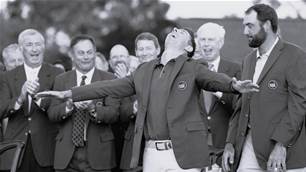The temptation to attack those who favour closing Oakleigh Golf Course in Melbourne is understandable, but it is difficult to imagine how anything could be more counterproductive than to give in to it.
There is no faster way to lose an argument than to make the case for the opposition and every tweet or Facebook post from a golfer that uses profanity and abuse does exactly that.
I couldn’t disagree more vehemently with those who think a park is a better use of space than the golf course but the way to make that case isn’t to play ‘the man’ but ‘the ball’.
Name calling is for children. And it doesn’t work. When was the last time you changed your mind about something because somebody called you a d***head?
Now give some thought to how effective that will be as a strategy in making sure Oakleigh remains available for all those who use it.
(If you’re among those who have indulged in abusive behaviour and Oakleigh goes on to be repurposed be assured you have contributed to the outcome. If you’re tempted to make your point with profanity, don’t.)
For the most part, those who think golf is a ‘waste of space’ or for ‘the privileged few’ act not out of malice but ignorance and the responsibility is on us golfers to educate, not berate.
A far better use of energy than name calling is to point out the myriad benefits golf brings to a community.
"The question for golf is not how to stop such discussion but to figure out how to best respond. And one thing is certain: aggression isn’t the answer."
Golf has plenty to recommend it and what needs to happen next is for that case to be made (and made well) because golf has no inherent right to exist. It needs to earn its place as a community asset.
Anyone who follows Sandy Jamieson on X (formerly known as Twitter) knows the diversity of people who use the facility, not the least of them being Sandy’s own Reach and Belong program.
But many others also have stories to tell of the role Oakleigh has played for them and their families and those need to be shared, too.
Monash City Council has set up a web page (HERE) for feedback and respectful submissions which point to the positives the golf course provide will all help ensure it remains for future generations. Submissions that do the opposite will ensure it does not.
None of the arguments on either side of this debate are new (though some will be unique to Oakleigh) and it seems all public courses will at some point need to make them.
As golfers, it is our responsibility to help those who don’t play understand how they, too, benefit from the continued existence of golf in communities.
My colleague Jimmy Emanuel wrote about this very issue just a few weeks ago (HERE) and as he points out: “These opinions and active protest won’t stop anytime soon, nor will the frequent articles from anti-golf corners.”
The question for golf is not how to stop such discussion but to figure out how to best respond.
And one thing is certain: aggression isn’t the answer.
Related Articles

Morri: Proving perceptions wrong for the sake of public golf

Morri: The devil is in the details













